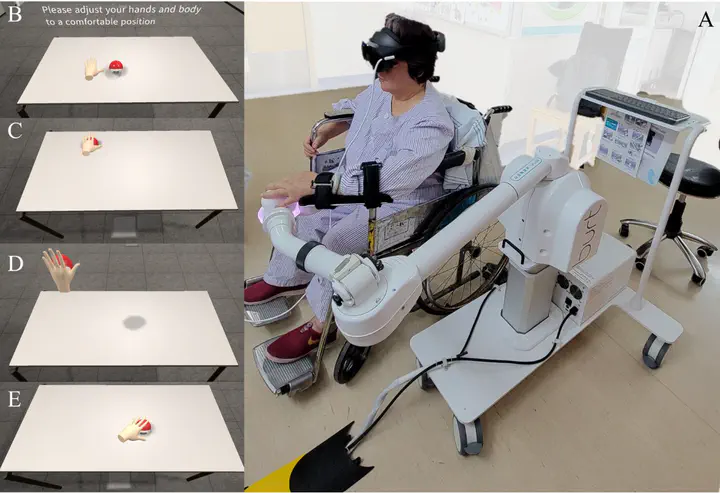To Reach the Unreachable: Exploring the Potential of VR Hand Redirection for Upper Limb Rehabilitation

Abstract
Rehabilitation therapies are widely employed to assist people with motor impairments in regaining control over their affected body parts. Nevertheless, factors such as fatigue and low self-efficacy can hinder patient compliance during extensive rehabilitation processes. Utilizing hand redirection in virtual reality (VR) enables patients to accomplish seemingly more challenging tasks, thereby bolstering their motivation and confidence. While previous research has investigated user experience and hand redirection among able-bodied people, its effects on motor-impaired people remain unexplored. In this paper, we present a VR rehabilitation application that harnesses hand redirection. Through a user study and semi-structured interviews, we examine the impact of hand redirection on the rehabilitation experiences of people with motor impairments and its potential to enhance their motivation for upper limb rehabilitation. Our findings suggest that patients are not sensitive to hand movement inconsistency, and the majority express interest in incorporating hand redirection into future long-term VR rehabilitation programs.